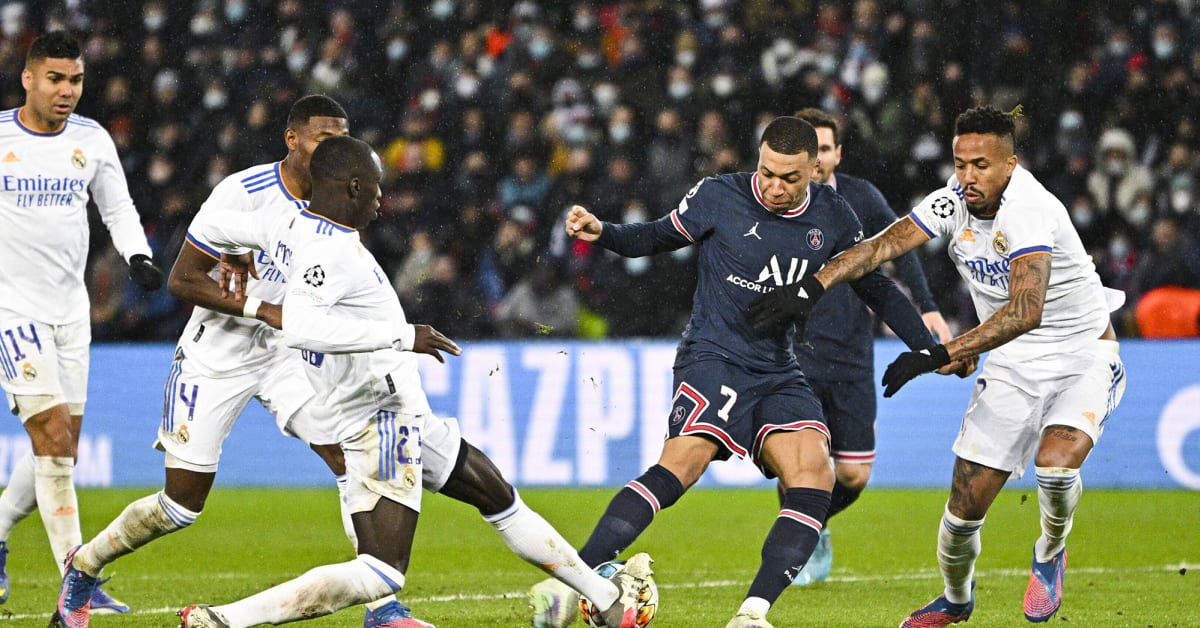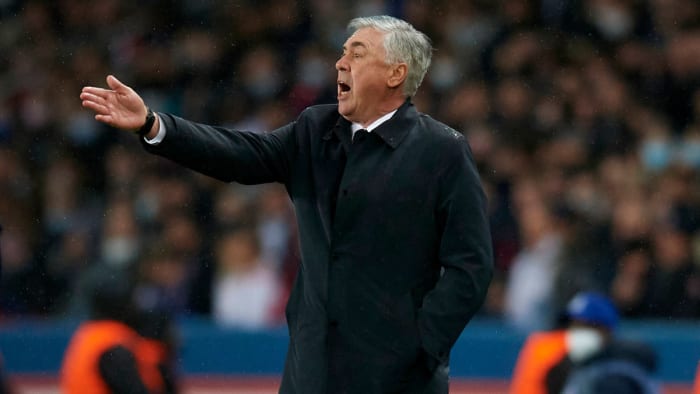What the Away Goals Rule Change Does—and Doesn’t—Mean for the Champions League
It didn’t take long for the away goals apologists to rouse themselves. One defensive performance from Real Madrid at Paris Saint-Germain was all it took for them to bemoan the abolition of a law that has manipulated football since it was trialed in the Cup-Winners’ Cup in 1965–66 and predict the coming of an apocalypse of negativity, the descent of football into attrition, time-wasting and spoiling.
In the four games since the change of regulation, though, away teams have scored eight of the 10 goals thus far in the knockout stage of the Champions League (Manchester City’s five did the heavy lifting). Of course, that is not a sufficient sample size to judge anything, but then neither is one performance from a Madrid side that was worried about the fitness of center forward Karim Benzema.
Madrid had played fairly similarly in its three group games away from the Spanish capital, preferring to sit relatively deep and play on the counter, which had yielded three wins without conceding a goal. That, almost certainly, would have been its approach with or without the away goals rule. It’s how Carlo Ancelotti tends to manage away games in Europe. And that tendency was only ever going to be heightened by the need to negate, as far as possible, the pace of Kylian Mbappé and prevent him exploiting any space behind the defensive line. Given how Dani Carvajal struggled against Mbappé anyway, it’s probably just as well he was given additional protection.
That’s not to say it was right to play that way—certainly there was a constituency of Madrid fans angered their side had played like a “small” team—but neither was this an aberration explicable only by the law change.
The outcry seemed to stem from a misapprehension about the role of the away goals rule. Although it was introduced to encourage away teams to be more attack-minded, there is no evidence at all that it succeeded. It was quite the reverse, in fact. The European Cup ran for 12 seasons before the away goals law was introduced, and in those 12 seasons the away side failed to score in 33% of games. In the 12 seasons after it was introduced, the away side failed to score in 45% of games.
The number of goals per game in the European Cup fell from 3.26 in 1966–67—the last season before the regulation was introduced—to 2.34 in ’87-88, after which, for other tactical reasons, the numbers began to rise again. Far from encouraging away teams to attack more, the evidence suggests they found it harder to score, probably because home teams were incentivized to defend. But there is more recent and direct evidence: The introduction of away goals to the MLS playoffs in 2014 made no difference to how many goals were scored.
None of this should come as a surprise. The football of today is very different than the football of the 1960s. For one thing, travel is easier, and environments are more homogenized. Crowds are far less hostile. Away teams are not turning up looking primarily to survive. Before ’80, home teams in UEFA competition had an advantage of 1.06 goals per game. By 2000 that had fallen to 0.77, and by ’18 it was 0.51. Playing away just isn’t as difficult as it used to be.
Besides which, it’s much harder to shut games down than it used to be. The introduction of the backpass law means the ball is in play more. Refereeing tends to be better. Intimidatory tackling has been outlawed. The offside law has been liberalized. And also, at least at the top European level, the players are better. As Madrid found, if you sit deep for 90 minutes, eventually Mbappé (or Lionel Messi or Neymar or Ángel Di María or whoever) will produce a moment of genius that will unlock you. Attacking movements and interchanges are finally coordinated. Defending now in the Champions League is harder than it has ever been.
Perhaps Madrid’s approach was conditioned by the abolition of the away goals rule. But it’s very hard to believe a policy of massed defense will pay off in the Champions League in the long term. What is likely is that more games will go to extra time and penalties, and there will not be those moments of high (but artificial) drama in which a team that is losing on aggregate scores one goal and is suddenly winning (and vice versa). Perhaps some of those periods of extra time will not be especially entertaining, and whether you think that is a price worth paying so that some goals are not arbitrarily weighted more heavily than others is a matter of personal choice.
But as well as the high drama, there have been plenty of second legs killed by an early goal for an away team holding a narrow first-leg lead. Football is a conservative sport, but some change is good.
More Soccer Coverage:







